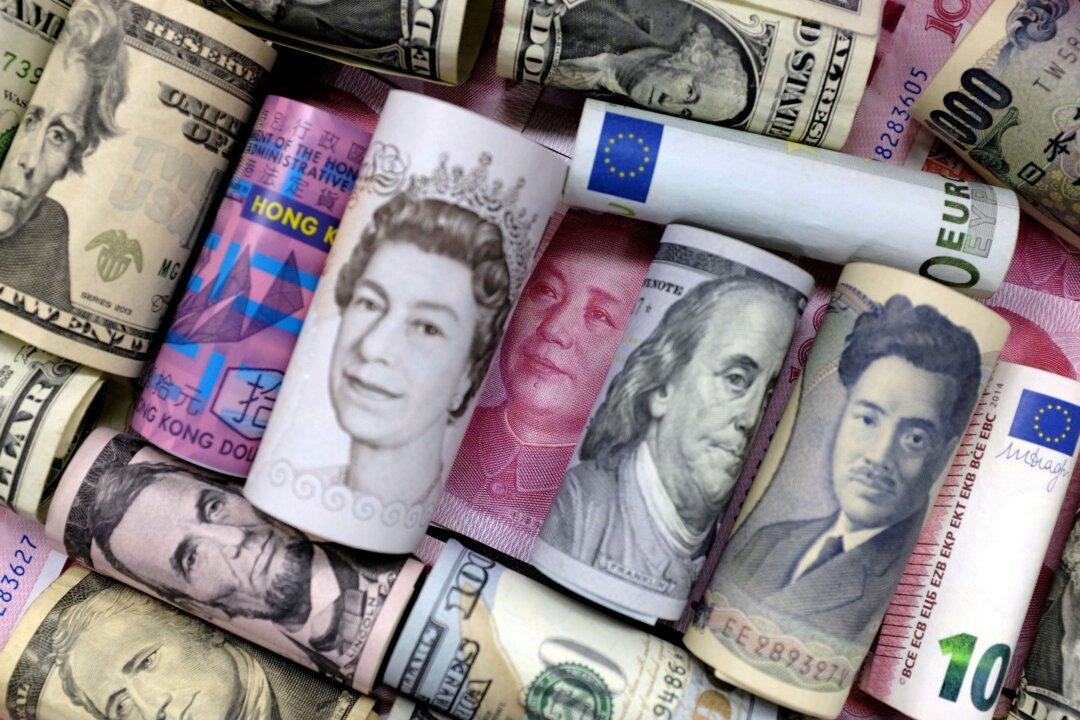LONDON—The dollar traded flat against major currencies on Friday ahead of a U.S. non-farm payrolls report expected to provide traders with further clues on the pace of the Federal Reserve’s policy normalisation.
The U.S. Dollar Currency Index, which measures the dollar against a basket of six peers, rose 0.1 percent to 94.338, last trading unchanged at 94.164.





